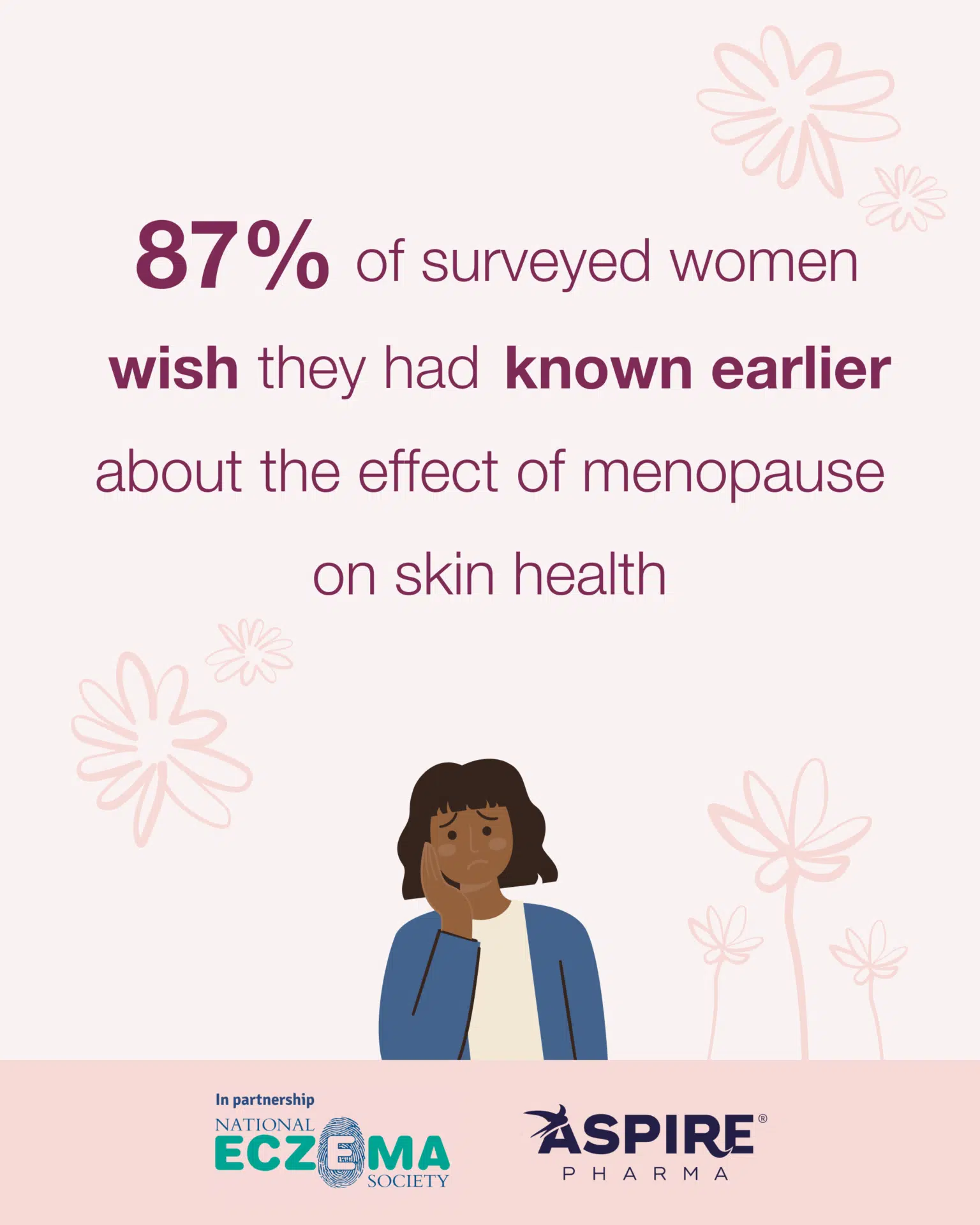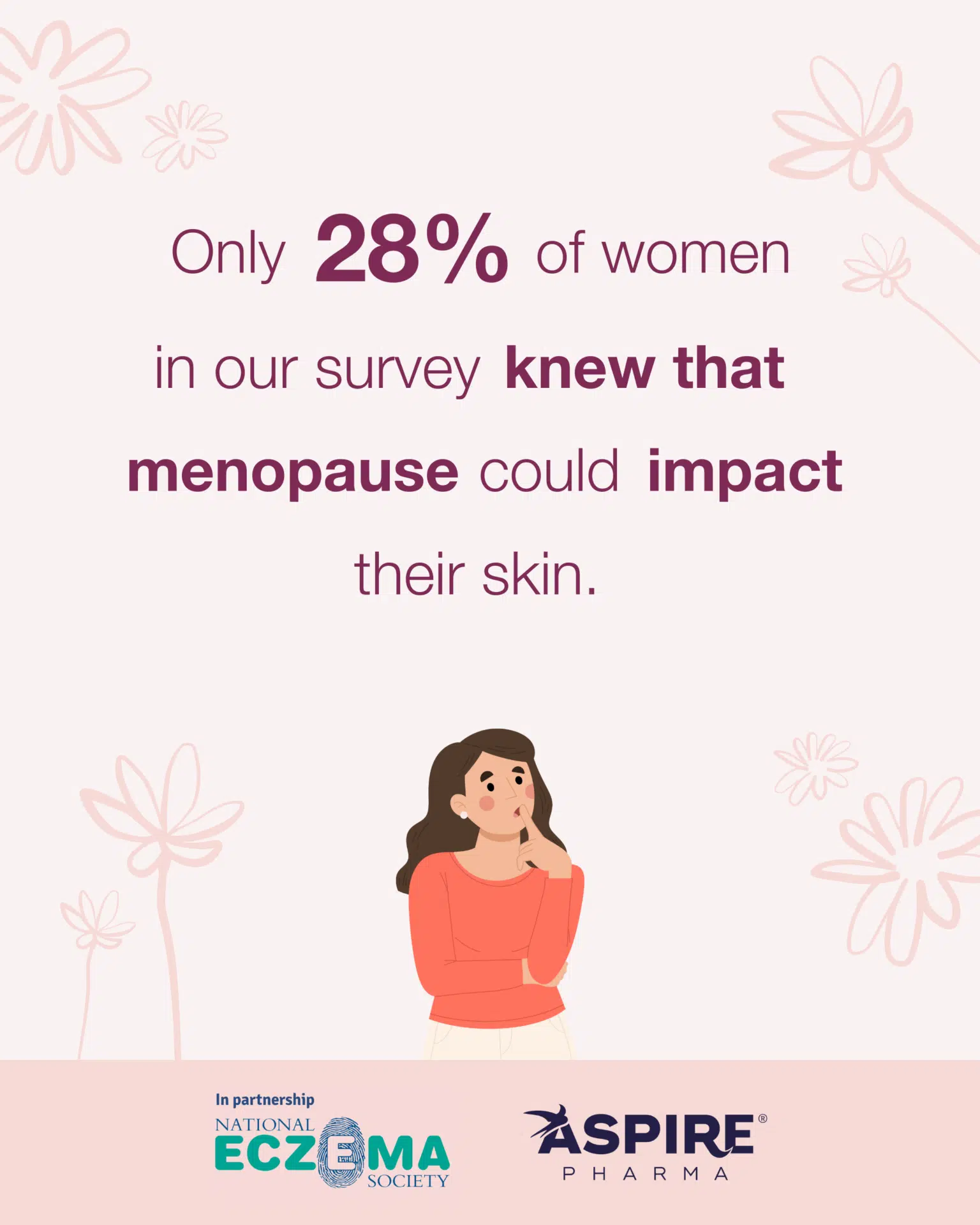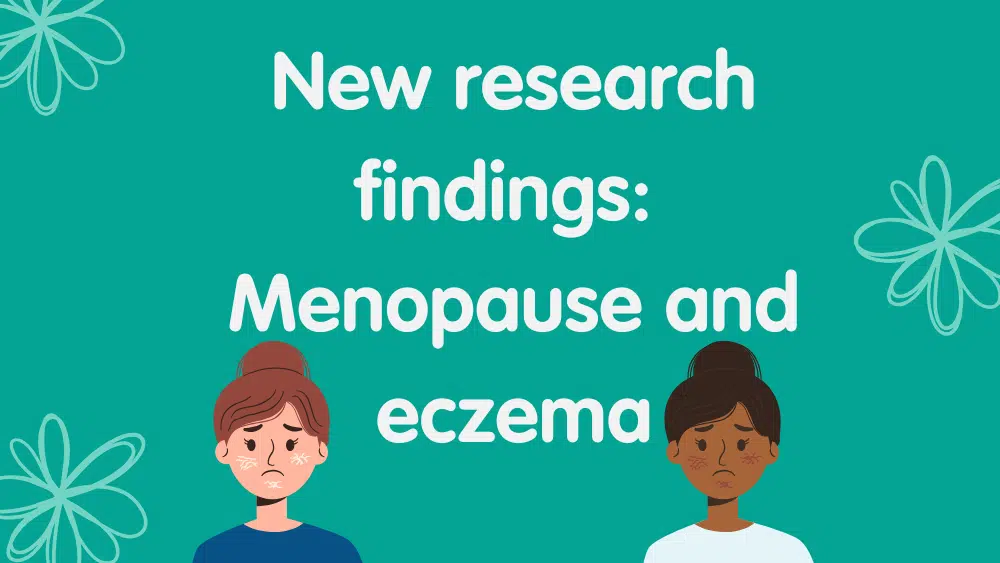New research from National Eczema Society and EPIMAX®, surveying over 700 women across the UK, highlights the huge impact of menopause on eczema and skin health. One in four (25%) women who took part in the survey developed eczema for the first time during menopause. The majority of women, some 87%, wish they had known more about the impact of menopause on skin health before experiencing menopause themselves.
In England and Wales, women make up 51% of the population, and at some stage in their lives they will go through menopause. While symptoms like hot flushes and brain fog are widely recognised, the impact of menopause on skin health remains under-researched and rarely discussed. That needs to change!
We want to shine a light on menopause and eczema. It’s time to start the conversation.

How does menopause affect the skin?
During menopause, oestrogen levels decline, leading to changes in the skin that can make it more prone to dryness, irritation and eczema. Despite this, the connection between menopause and eczema remains largely unrecognised, even though it significantly affects many women’s daily lives.
I think we need more research into the affects of the menopause on eczema and skin health, and more support made available to women who are suffering with this, along with everything else that menopause brings – read Kathryn’s story
Impact on daily life
In the survey, 85% of women with eczema or dry skin said the menopause impacted their lives, affecting their confidence, relationships, hobbies, and social lives. Many women reported feeling self-conscious (73% of respondents), stressed (47%), sad (43%) and fatigued (34%).
Despite this, 90% of women said there is not enough information available about managing eczema or dry skin during menopause. This is especially important for those women experiencing eczema for the first time during and after menopause.

More awareness and research needed
These findings highlight the urgent need for further research to better understand the connection between menopause and eczema. At National Eczema Society, we’re proud to have started this important conversation and raise awareness, but there’s still much more to do.
We’re grateful to the 710 women who took part in the eczema and menopause survey, and to EPIMAX® for collaborating with us to raise awareness of the impact of menopause on eczema and skin health. The more we talk about it, the greater the impact we can make.
Find out more about menopause and eczema.
Data from a survey of 710 respondents who are experiencing menopause and suffering with eczema or dry skin conducted by EPIMAX® and National Eczema Society in October 2024 ©.

